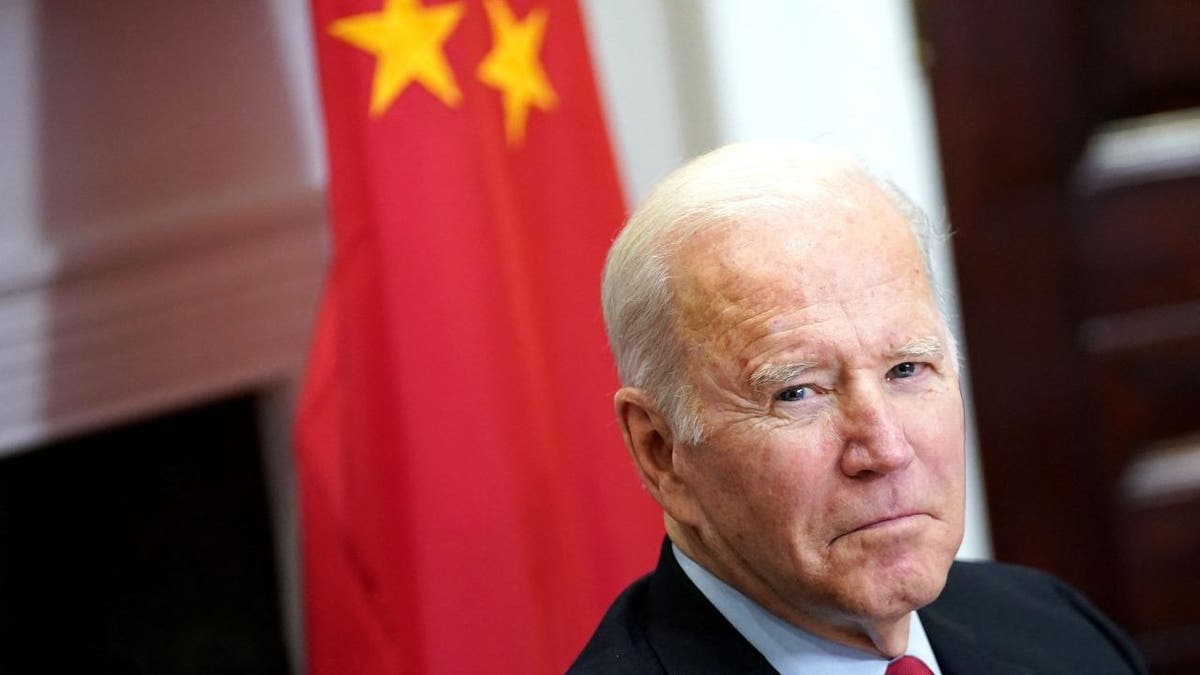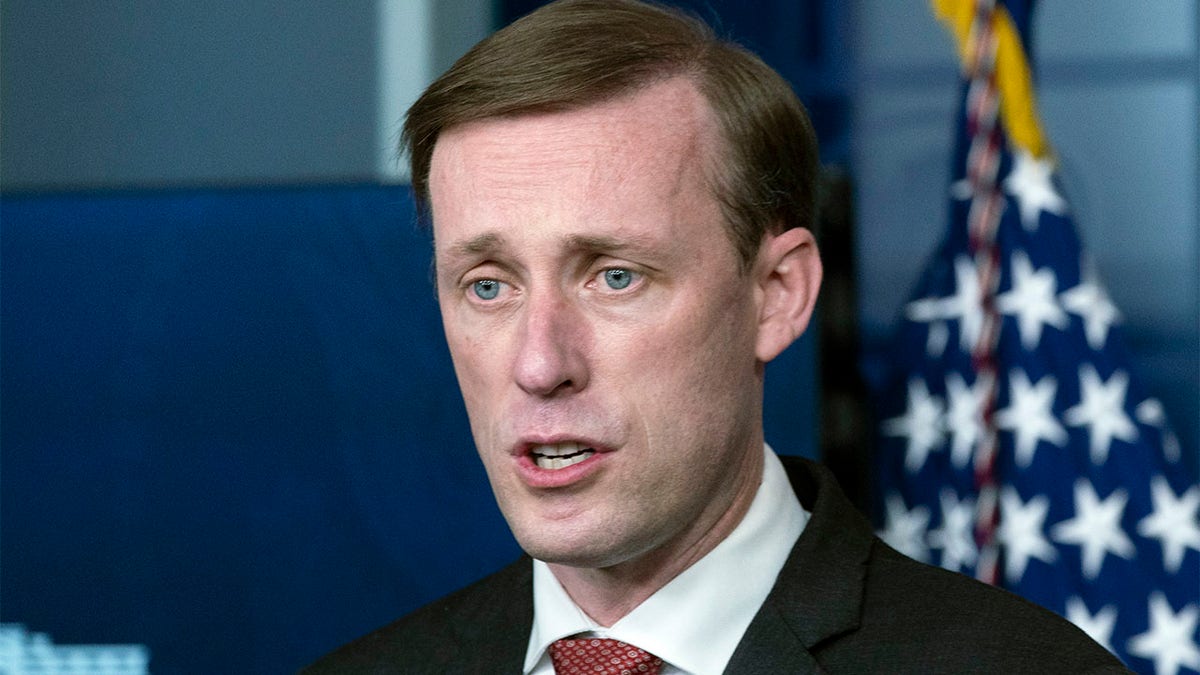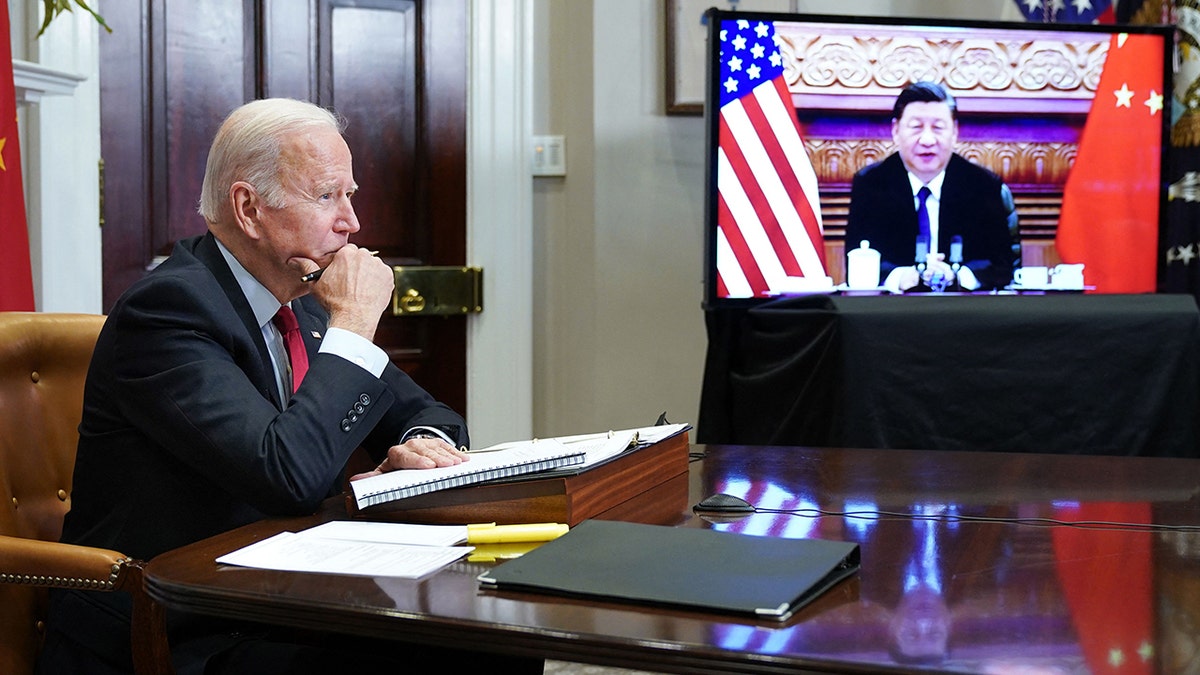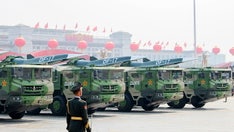Ex-Trump adviser: US switched from 'America first to America last' policy with China
Former Trump national security adviser Gen. Keith Kellogg discusses Biden's meeting with Chinese President Xi Jinping.
President Biden and Chinese President Xi Jinping agreed to arms control talks as the communist nation looks to beef up its nuclear stockpile, national security adviser Jake Sullivan said Tuesday.
The world leaders held their most extensive talks to date Monday with a virtual three-hour meeting, during which Biden raised the need for "strategic stability" as tensions with China remain heightened.
"The two leaders agreed that we would look to begin to carry forward discussions on strategic stability," Sullivan said during a virtual panel with the Brookings Institute. "It is now incumbent on us to think about the most productive way to carry it forward from here."

US President Joe Biden meets with China's President Xi Jinping during a virtual summit from the Roosevelt Room of the White House in Washington, DC, November 15, 2021. (Photo by MANDEL NGAN/AFP via Getty Images)
Neither the White House nor China’s foreign ministry mentioned any plans to hold such talks following the summit, but agreeing to discuss arms control would mean a stance reversal by the Chinese Communist Party (CCP).
China flatly rejected nuclear treaty talks after Donald Trump threatened not to renew the New START Treaty, a 2010 agreement between the U.S. and Russia that places limits on the nation's nuclear stockpiles.
The treaty was ultimately renewed by the Biden administration, but Secretary of State Antony Blinken said the White House would continue to push China on countering its expanding nuclear arsenal.
CHINA CLAIMS BIDEN DENOUNCED 'TAIWAN INDEPENDENCE,' BUT WARNS US IS 'PLAYING WITH FIRE'
Sullivan said any talks with China would not reflect the same kind of long-held dialogue with Russia, noting those agreements are "far more mature."
"What President Xi and President Biden really reinforced to one another at multiple points last night was that this relationship needs to be guided by consistent and regular leader-to-leader interaction," the national security adviser said.

In this March 12, 2021 photo, National Security Adviser Jake Sullivan speaks with reporters in the James Brady Press Briefing Room at the White House in Washington. (AP Photo/Alex Brandon)
It remains unclear what nuclear arms talks with China would look like, as the communist nation has repeatedly pointed to its relatively small arsenal as justification for its continued efforts in developing warheads.
According to data from the Arms Control Association, Russia has the largest nuclear arsenal in the world with more than 6,255 warheads on hand. The U.S. comes in second with 5,550 warheads.
China ranks a distant third with 350 nuclear warheads.
Sullivan said the virtual talks Monday were "fundamentally different" from previous calls the leaders have held, adding the discussion was a "more intense, engaged session."
Biden and Xi described their conversation as candid, though neither leader offered solutions to some of the biggest geopolitical hurdles facing U.S.-China relations.
CLICK HERE TO GET THE FOX NEWS APP

President Biden meets with China's President Xi Jinping during a virtual summit from the Roosevelt Room of the White House in Washington, D.C., Nov. 15, 2021. (MANDEL NGAN/AFP via Getty Images)
While China’s alleged commitment to engage in nuclear non-proliferation talks with the U.S. would be championed by the Biden administration, Sullivan said the White House would not view such actions as a "favor."
"China’s act of good faith on global issues is not a favor to the United States," he added. "It is something that is expected of all responsible states."












































